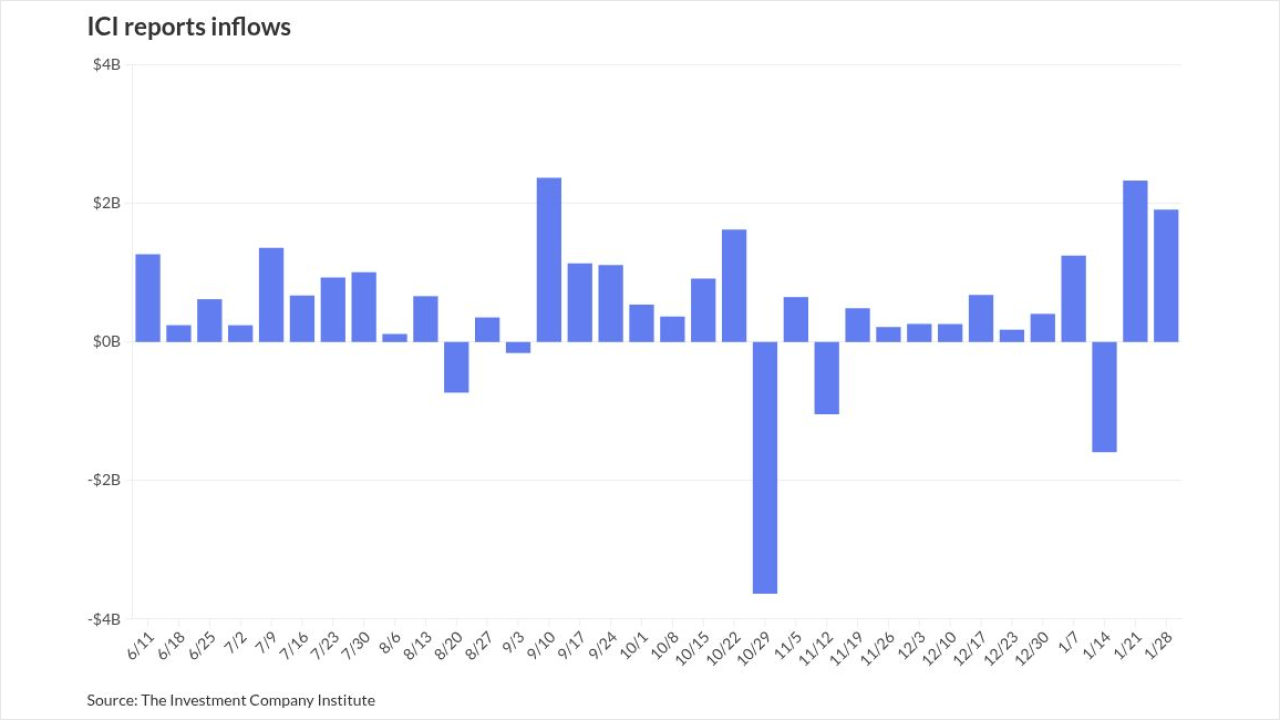Kentucky's economy remains in overdrive as it continues to rack up record after record. This month the state saw the largest surplus in its history as the general fund budget had a $1.55 billion overage at the end of fiscal 2023.
Nearly all of the surplus will go into the commonwealth's rainy-day fund, bringing it to a record $3.7 billion — a 2,700% increase since 2019.

Additionally, the state experienced an increase of 6,400 jobs filled, bringing the total to 2,015,600 in June.
"We have a red-hot economy with the most jobs ever filled" said Gov. Andy Beshear. "We've secured record upon record of budget surpluses and the largest rainy-day fund ever. We've also lowered income and property taxes."
Earlier this month, the state recorded its largest-ever general fund revenue surplus, $1.4 billion.
"My administration is only going to work harder to make sure every corner of the commonwealth shares in this prosperity," Beshear said.
Royden Durham, lead portfolio manager of Aquila Churchill Tax-Free Fund of Kentucky, said the latest news highlighted the state's efforts to improve its fiscal health.
"These developments [the state's largest budget surplus and rainy-day fund, as well as job creation] have resulted both from the state government efforts to improve Kentucky's fiscal standing and continued growth in different areas of Kentucky's economy, particularly in the state's logistics industry," Durham told The Bond Buyer.
"New developments in the auto industry are likely to contribute to the growth and bring higher paying jobs with Toyota's announcement of its electric vehicle manufacturing in Kentucky and the buildout of Ford's battery manufacturing plant in Glendale in partnership with BlueOvalSK," he added.
In 2021, the commonwealth saw record economic development, with private-sector new-location and expansions that included a record $11.2 billion in total planned investment and commitments that are expected to create 18,000-plus full-time jobs in coming years.
In 2022, 248 new locations and existing expansions were announced, leading to expectations of 16,000 full-time jobs created and $10.5 billion in new investment in the state.
Workers have also seen rising wages — last year the average incentivized hourly wage was $26.78 before benefits, the second highest since 2010 and an 11.5% increase from 2021.
Beshear also helped broker two of the largest economic development projects in state history.
In September 2021, Ford Motor Co. and SK Innovation announced a $5.8 billion investment that will create 5,000 jobs in Hardin County. And in April 2022,
The state said these investments solidify Kentucky as the EV battery production capital of the U.S.
Durham said, "government fiscal policies and private-sector initiatives have allowed Fitch Ratings and S&P Global Ratings to upgrade Kentucky's issuer credit ratings [ICR] to AA and A-plus, respectively,"
In June, S&P upgraded Kentucky's ICR to A-plus from A; the outlook, previously positive, is now stable.
"The upgrade reflects our view of Kentucky's commitment and execution to strengthen its budgetary flexibility and long-term financial stability, which we expect will continue in the current and future budget cycles," said S&P credit analyst Anne Cosgrove.
The upgrade is supported by the state's "sustained trend of structural balance, with operating surpluses that have led to a robust budgetary trust stabilization fund at its highest level ever, continued pension funding commitment following pension reforms, and funding these pension costs in excess of actuarially determined contributions," S&P said.
In May,
Fitch assigned a stable outlook to the credit. Fitch said its upgrade "reflects material improvements to Kentucky's fiscal reserves since 2020 as a result of improved budgetary discipline and a post-pandemic surge in tax collections now in its third year.
Kentucky is rated Aa3 by Moody's Investors Service and AA-minus by Kroll Bond Rating Agency. Both have stable outlooks on the credit.
Kentucky's seasonally adjusted preliminary unemployment rate remained steady in June at 3.8%. The rate was down 0.1-percentage point from a year ago, according to the Kentucky Center for Statistics.
In contrast, the jobless rate in the United States was 3.6% in June, down 0.1-percentage point from May.
Kentucky's civilian labor force was 2,054,436 in June, up 2,017 from May. The number of people employed rose 1,924 to 1,977,136 while the number unemployed increased by 93 to 77,300.
"As more workers continue to enter the labor force, they are quickly finding jobs. As a result there was little change in the number of people unemployed," said Mike Clark, director of the University of Kentucky's Center for Business and Economic Research.
Employment increased by 2,200 jobs in the professional, scientific and technical services subsector. The administrative, support and waste management subsector grew by 1,500 jobs.
"Kentucky's professional and business-services sector has recovered the jobs lost during the end of 2022," said Clark. "Much of this recovery occurred among the administrative, support and waste management subsector. However, jobs in the professional, scientific and technical services subsector have also seen strong gains in recent months."

Starting Sept. 7, state residents will be able to make sports bets at several retail locations and on mobile applications, which should enrich state coffers.
"Bringing sports wagering to the state not only gives Kentuckians a much-anticipated new form of entertainment," Beshear said, "but also brings money to the state to support pensions, freeing up money that can be used to build a better Kentucky through the funding of education, economic development, disaster recovery and other necessary projects, like providing cleaner water, building roads and high-speed internet."
At last month's Kentucky Horse Racing Commission meeting, its members unanimously approved rules to govern sports wagering after which the governor signed the regulations.
Each of Kentucky's licensed horse racing facilities can apply for a retail sportsbook at its main location or at a licensed satellite location. The state is expecting that each facility will open a retail location and many will be ready to launch Sept. 7, just in time for the National Football League season kick-off and the college football season.
Each
In March, Beshear signed bipartisan legislation,
Since then, the Racing Commission has met with representatives in states that recently launched sports wagering, as well as industry experts, to learn from best practices and shared experiences.
"The conversations we had with regulators and industry experts laid the groundwork for these clear and responsible regulations," said Commission Chairman Jonathan Rabinowitz.
"The commission has a long history of pari-mutuel wagering integrity and is uniquely positioned to protect Kentucky bettors," he said. "Wagering integrity was the top priority of these regulations. We also considered the importance of flexibility to meet the changing demands of the industry."





